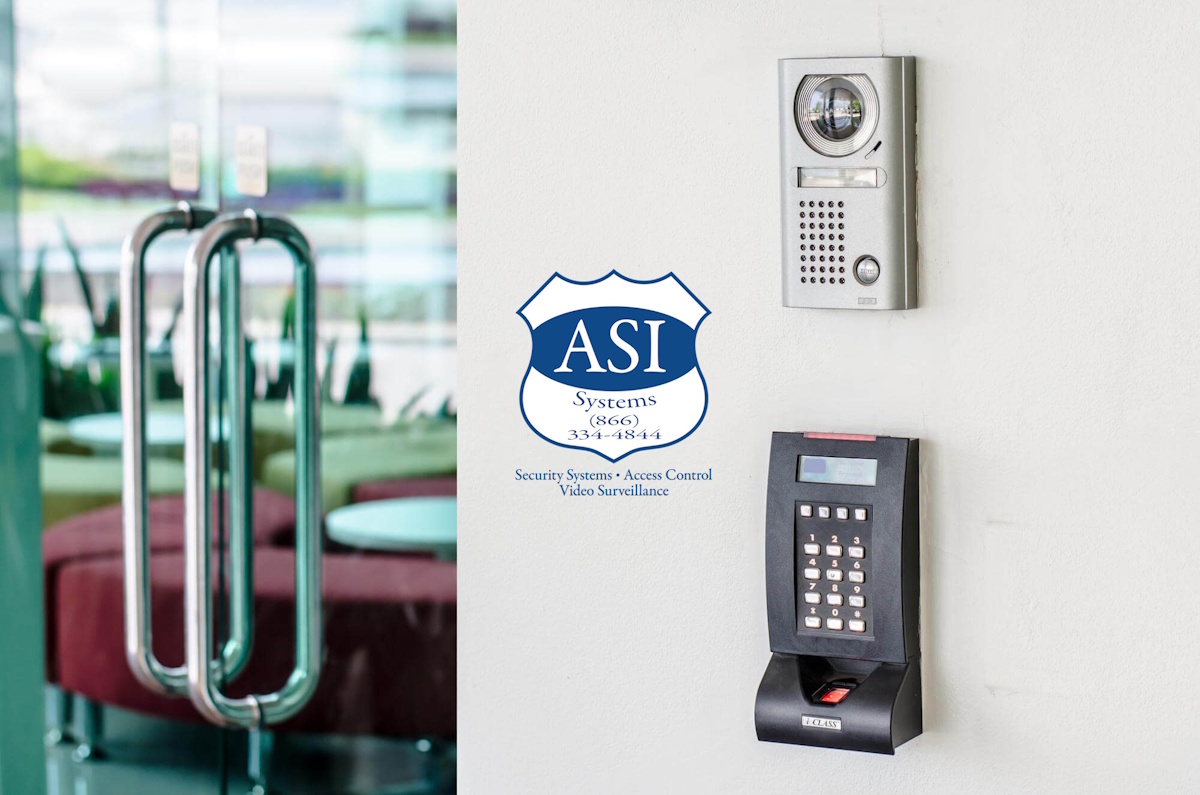Whether you are running a business or managing an organization, investing in the security part of it is the key today.One of the best ways to do it is by opting for access control systems. Such systems will ensure only authorized personnel can have access to certain places or areas.
Here in this post, we will look into such access control systems, their components, benefits and best practices that you can follow in choosing the right one for your use.
What is an Access Control System?
An access control system is a security solution that is used to restrict people and manage their entry to spaces. It protects the spaces from unauthorized access and functions through authorization and authentication mechanisms which involve the use of biometric scanners, keycards, PINs, etc. to grant or deny access.
Types of Access Control Systems
Here are the various types of access systems offered by ASI – Access Control Company in Omaha, NE:
1. Discretionary Access Control (DAC): DAC is a flexible and a common access control system used to manage permissions. Comparatively, it can be less secure and is used by the owner to give access permissions.
2. Mandatory Access Control (MAC): MAC is highly secured and strictly defined by a central authority. It is majorly used in military and government setups.
3. Role-Based Access Control (RBAC): RBAC is used within organizations to assign access based on roles. Here based on job functions permissions can be grouped.
4. Attribute-Based Access Control (ABAC): ABAC functions by giving access based on factors like device type, location and time. It is ideal for organizations with complex security needs as it considers different factors before giving access.
Key Components Of Access Control Systems
Any access control systems in Omaha have the following key components:
Authentication methods: User identity is verified with authentication process before granting access. It includes:
- Biometric scanners
- Keycards & fobs
- PINs and passwords
Authorization mechanisms: Authorization is about setting the permission levels for verified users to control access to specific (physical/digital) spaces. Attribute-based and role-based permissions are usually set for that.
Hardware components: Different hardware components are involved in access control systems in Omaha, and they are:
- Controllers
- Access panels
- Door readers
Software solutions: Software administrators can monitor, manage and configure security settings with access control software. The main two types are:
- On-premises systems
- Cloud-based solutions
Secure Your Business with Advanced Access Control!
Keep unauthorized access at bay with cutting-edge security solutions. Monitor, manage, and protect your premises effortlessly.
Benefits Of Implementing Access Control Systems
Choosing ASI – access control company for access control monitoring in Omaha, NE, ensures enhanced security and better management of entry points. With advanced access control systems, businesses can restrict unauthorized access, safeguard sensitive areas, and track who enters and exits in real time. ASI’s solutions provide seamless access control monitoring, helping organizations improve safety, streamline operations, and reduce security risks effectively.
- Enhanced security: Prevents any unauthorized access to boost security
- Better monitoring and control: Get real-time reporting and access logs.
- Reducing unauthorized access: Authorized personnel with only have access to restricted areas.
- Integration with other security systems: Can work seamlessly with alarms, security cameras and cybersecurity tools to provide complete security.
How To Choose The Ideal Access Control System For Your Business?
Before selecting the right access control system for your business in Nebraska, it’s essential to evaluate key factors. Consider the level of security required, integration with existing infrastructure, and ease of management. Partnering with ASI – an access control company ensures reliable access control monitoring, helping you safeguard your premises efficiently. Additionally, look for scalable solutions that can adapt to your growing needs, providing seamless access for employees while keeping unauthorized individuals out.
- Assessing security needs: Based on operational and industry needs, determine the level of security you require.
- Scalability and integration: Opt for a system that can easily integrate with your security measures and scale as your business grows.
- Cost and maintenance factors: Think about the upfront costs, potential expansion budget and ongoing maintenance.
Best Practices For Implementing Access Control Systems
- Regular audits and updates: Review and update access permissions at regular intervals.
- Employee training on security protocols: Make sure your staff understands compliance needs and security measures.
- Integration with surveillance and alarm systems: Boost security of your space by connecting it your systems with alarm systems and CCTV.
Frequently Asked Questions
What is the use of an access control system?
Any access control systems in Omaha are basically designed secure areas by managing and restricting the entry of individuals.
How does an access control system improve security?
By verifying identities of individual, systems can stop any authorized entry, thereby reducing the risks in the form of data breaches, theft and others.
What are the key types of access control systems?
There are 4 key types of access controls like MAC, DAC, ABAC and RBAC.
Is it possible to integrate them with other security systems?
Yes, it is. You can have them working with other systems like alarms, surveillance cameras and cybersecurity tools.
What all industries can gain from access control systems?
Access control systems can be used by different industries like corporate, healthcare, government, education, finance, etc. to safeguard their physical assets and sensitive data.
Looking for Reliable Access Control Systems?
Seamlessly integrate with alarms, surveillance, and cybersecurity tools for complete protection. Secure your space with confidence!

